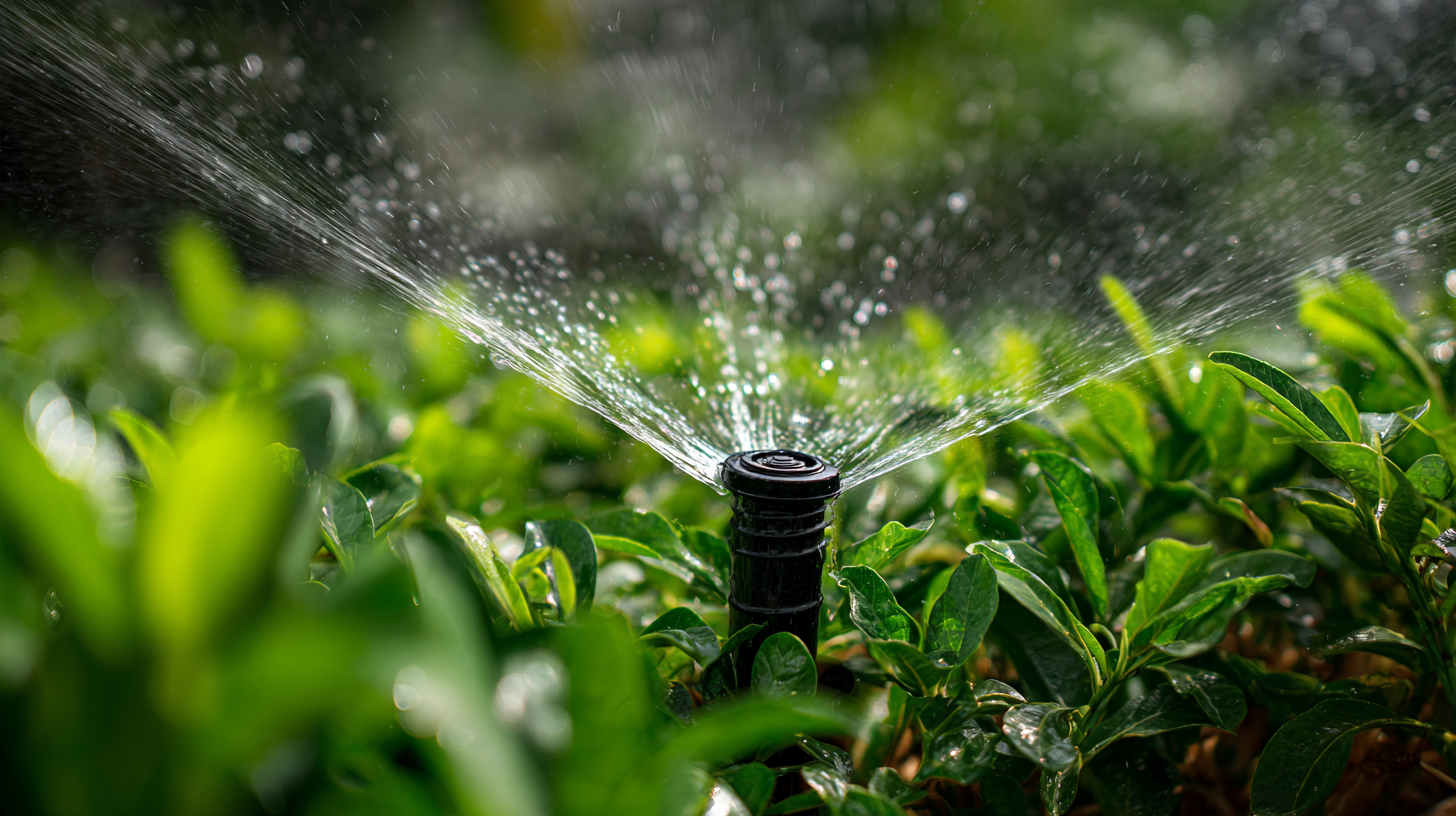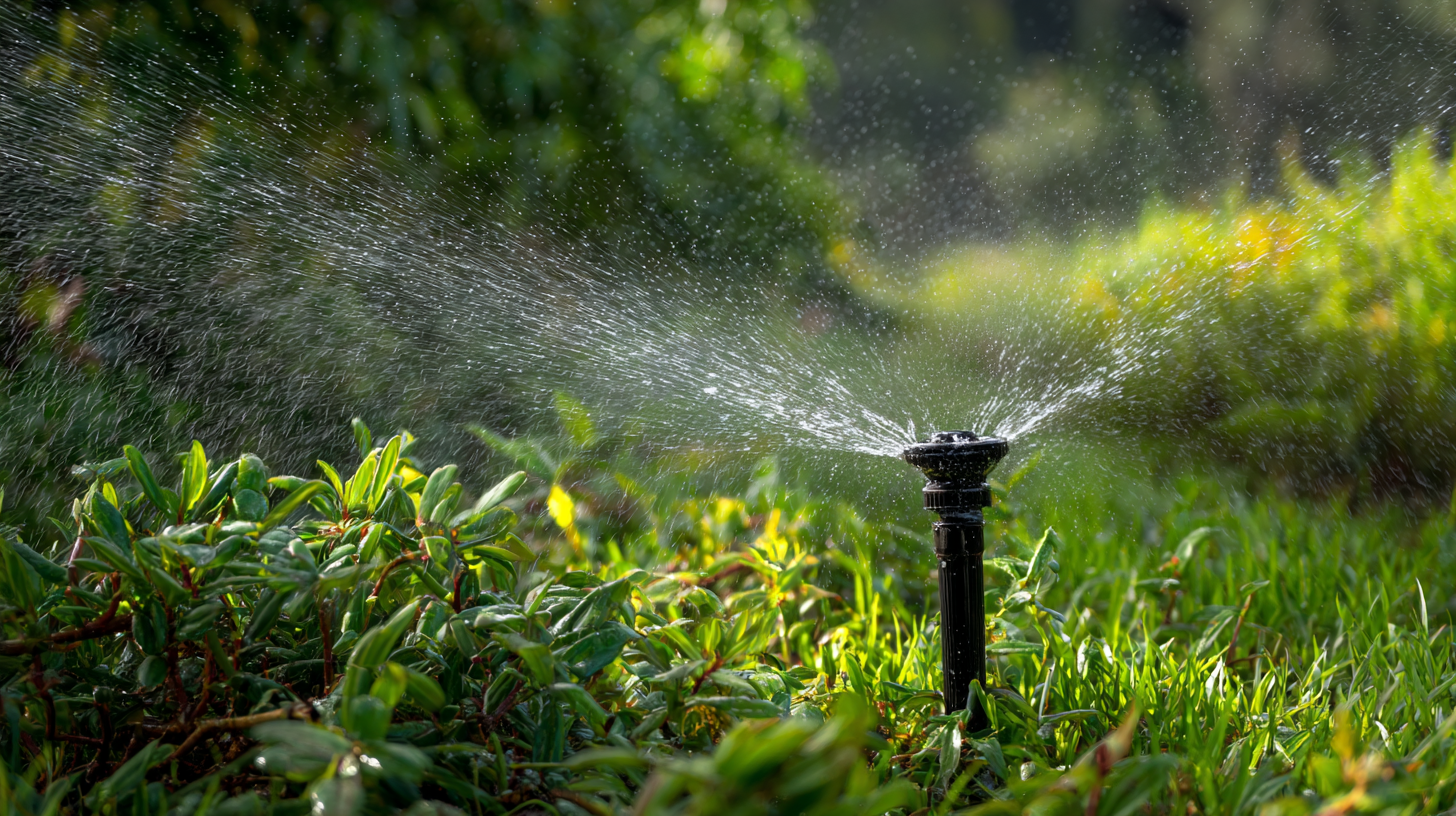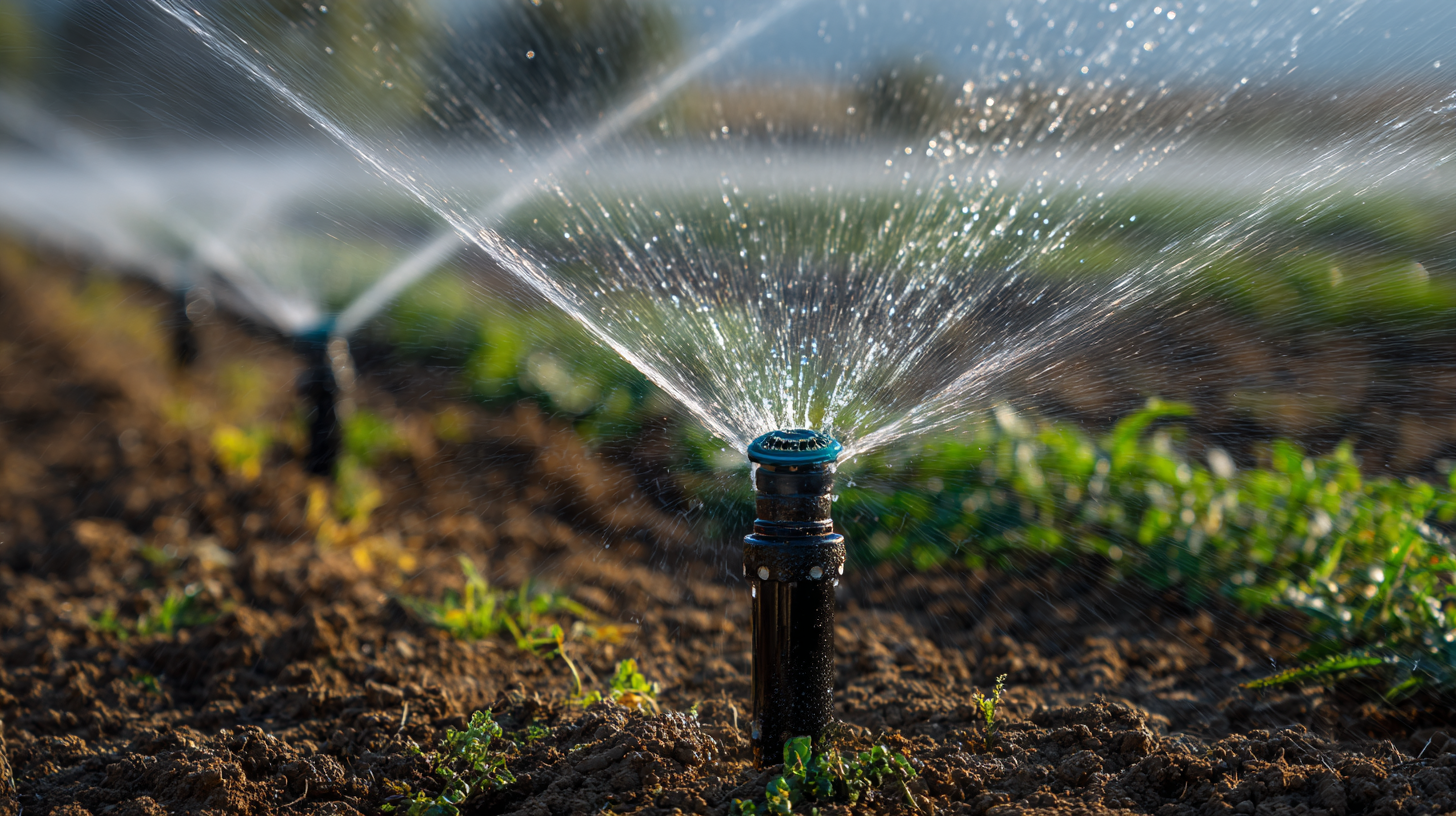As the global demand for efficient irrigation solutions continues to rise, understanding the standards of garden sprinklers becomes paramount for both consumers and manufacturers alike. According to a recent report by the International Irrigation Association, the global irrigation market is projected to reach $96 billion by 2025, fueled by advancements in technology and an increasing emphasis on water conservation. Garden sprinklers, in particular, play a crucial role in optimizing water usage, ensuring that gardens receive adequate hydration while minimizing waste. Moreover, standardized production practices not only enhance the effectiveness of these systems but also ensure reliability and safety for homeowners. As we delve into the intricacies of global production standards for garden sprinklers, we will explore the key advantages these standards offer buyers, empowering them to make informed decisions in a highly competitive market.

When purchasing garden sprinklers, reliable customer service is paramount. According to a report by the American Society of Irrigation Consultants, 70% of consumers rate customer support as the most vital factor when choosing irrigation products. Companies offering responsive support can significantly enhance customer satisfaction, particularly when facing installation challenges or maintenance issues. This emphasizes the importance of accessibility—whether it's through 24/7 hotlines, live chats, or comprehensive online resources.
Additionally, a study by the International Water Management Institute found that gardens equipped with properly functioning sprinklers can reduce water use by up to 30%. However, if customers encounter problems, they need swift access to expert advice. Quality customer service not only aids in the proper setup and maintenance but also fosters long-term relationships between consumers and brands. The availability of knowledgeable representatives who can offer personalized solutions can help buyers get the most out of their investments, ensuring that their garden remains lush and healthy.
When considering garden sprinklers, understanding maintenance costs over time is crucial for making an informed purchasing decision. According to a report by the Irrigation Association, the average maintenance cost for residential sprinkler systems can range from $50 to $150 annually, depending on system complexity and local labor rates. Regular maintenance, such as checking for leaks, adjusting spray patterns, and winterizing systems, contributes significantly to long-term performance and efficiency.
An often-overlooked aspect is the cost of replacement parts and repairs, which can add up over time. A study by the American Society of Agricultural and Biological Engineers indicates that replacing key components, like pumps and controllers, can incur costs ranging from $100 to $300 every few years. Moreover, neglecting routine maintenance can lead to inefficiencies, resulting in increased water bills which can escalate by approximately 20-30% annually. By investing in high-quality sprinklers and committing to regular upkeep, buyers can mitigate these costs and enjoy optimal performance throughout the lifespan of their garden sprinkler systems.

When purchasing garden sprinklers, the role of warranty cannot be understated.
According to a report by the Irrigation Association, 75% of buyers consider the length and terms of the warranty as a critical factor in their purchasing decision.
A robust warranty not only protects the investment but also instills confidence in the product’s quality and durability.
This assurance is particularly vital in a market where varying production standards can lead to significant discrepancies in performance and longevity.
Moreover, the National Association of Landscape Professionals states that nearly
60% of homeowners are willing to pay a premium for products that come with extended warranties.
Manufacturers that offer comprehensive warranties demonstrate their commitment to customer satisfaction and product excellence.
This level of assurance reduces perceived risk for buyers, making them more inclined to choose brands that stand behind their offerings.
In a landscape where quality can directly influence gardening success, a solid warranty emerges as a cornerstone of buyer confidence,
encouraging investment in top-tier sprinkler systems that promise efficiency and reliability.
In the competitive market of garden sprinklers, after-sales service has emerged as a crucial differentiator among leading brands. A recent report from the Irrigation Association highlights that nearly 70% of consumers consider after-sales support as one of the top three factors influencing their purchasing decisions. With the increasing complexity of irrigation systems, brands like Rain Bird, Hunter, and Orbit have tailored their after-sales services to ensure user satisfaction. For instance, Rain Bird offers a comprehensive online troubleshooting portal and a dedicated customer service hotline that operates seven days a week.

Comparative analysis reveals significant contrasts in warranty offerings and parts availability. According to industry data, Hunter provides a remarkable five-year warranty on its premium models, which instills confidence among buyers regarding product longevity. Conversely, Orbit has made strides in enhancing its customer service with a robust follow-up system, ensuring customers are supported post-purchase. These services not only improve customer loyalty but can also lead to repeat business, with studies indicating that satisfied customers are 60% more likely to purchase from the same brand again.
Maintaining a garden sprinkler system can be a daunting task, but with the right tips and strategies, homeowners can significantly reduce repair costs and extend the lifespan of their sprinklers. One effective method is to adopt predictive maintenance techniques, similar to those being utilized in the mining industry. By regularly monitoring the system and identifying potential issues before they escalate, gardeners can ensure that their sprinklers operate efficiently and require fewer repairs over time.
Additionally, investing in high-quality materials and components can enhance the durability of sprinklers. Utilizing advanced technologies, such as self-healing coatings or robust seals, can protect against wear and tear, ultimately prolonging the system's life. Just as industries are exploring innovative strategies to extend the lifespan of equipment, gardeners can benefit from embracing similar practices. By being proactive and adopting a mindset focused on longevity, buyers will not only enjoy a lush garden but also save on costly repairs, contributing to a more sustainable approach to garden maintenance.
This bar chart illustrates the importance ratings for several key factors related to garden sprinklers, highlighting durability as the most critical aspect, followed by water efficiency and ease of installation. Understanding these production standards can help buyers make informed decisions, reduce repair costs, and prolong the lifespan of their sprinklers.
